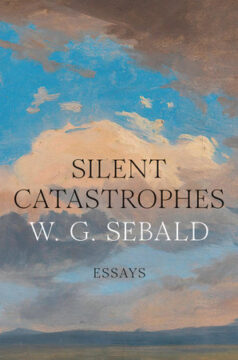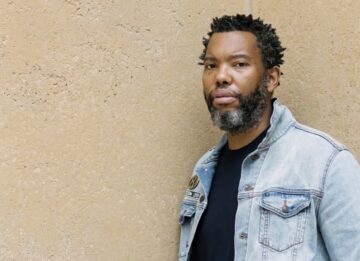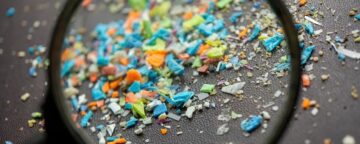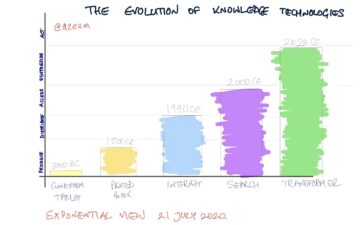Christian Macedonia in Singularity Hub:
 Most work using AI in drug development intends to reduce the time and money it takes to bring one drug to market—currently 10 to 15 years and $1 billion to $2 billion. But can AI truly revolutionize drug development and improve success rates?
Most work using AI in drug development intends to reduce the time and money it takes to bring one drug to market—currently 10 to 15 years and $1 billion to $2 billion. But can AI truly revolutionize drug development and improve success rates?
…Between 2010 and 2022, 20 AI-focused startups discovered 158 drug candidates, 15 of which advanced to clinical trials. Some of these drug candidates were able to complete preclinical testing in the lab and enter human trials in just 30 months, compared with the typical 3 to 6 years. This accomplishment demonstrates AI’s potential to accelerate drug development. On the other hand, while AI platforms may rapidly identify compounds that work on cells in a petri dish or in animal models, the success of these candidates in clinical trials—where the majority of drug failures occur—remains highly uncertain.
More here.
Enjoying the content on 3QD? Help keep us going by donating now.

 Slaves freed themselves. With this majestic assertion in 1935, W.E.B. Du Bois all but cemented
Slaves freed themselves. With this majestic assertion in 1935, W.E.B. Du Bois all but cemented  A
A  In December 1999, around her 65th birthday,
In December 1999, around her 65th birthday,  Coates’s The Message grapples with the question of whose stories get told, and how that forges our reality. As he writes halfway through: “Politics is the art of the possible, but art creates the possible of politics.” Known for his searing critiques of racial injustice, he came to wider attention with a 2014 essay
Coates’s The Message grapples with the question of whose stories get told, and how that forges our reality. As he writes halfway through: “Politics is the art of the possible, but art creates the possible of politics.” Known for his searing critiques of racial injustice, he came to wider attention with a 2014 essay  In early February 2020, China
In early February 2020, China  Self-expression is good, we tell ourselves, and it’s good to hear what others have to say. The more we’re able to converse, to share our thoughts, opinions, and experiences, the better we’ll understand one another and the more harmonious society will become. If communication is good, more communication must be better.
Self-expression is good, we tell ourselves, and it’s good to hear what others have to say. The more we’re able to converse, to share our thoughts, opinions, and experiences, the better we’ll understand one another and the more harmonious society will become. If communication is good, more communication must be better. M
M Mary McLeod Bethune (1875-1955)
Mary McLeod Bethune (1875-1955) C
C With its emphasis on media’s formative role in a society’s development, “Minerva’s Owl” would come to be seen as a founding document — maybe the founding document — of the academic discipline of media studies that emerged in the second half of the twentieth century. In 1964, the celebrated media savant Marshall McLuhan, who like Innis was a professor at the University of Toronto, wrote that he saw his own recent book, The Gutenberg Galaxy, as “a footnote to the observations of Innis.” The distinguished American educator and media theorist James Carey called Innis’s work “the great achievement in communications on this continent.”
With its emphasis on media’s formative role in a society’s development, “Minerva’s Owl” would come to be seen as a founding document — maybe the founding document — of the academic discipline of media studies that emerged in the second half of the twentieth century. In 1964, the celebrated media savant Marshall McLuhan, who like Innis was a professor at the University of Toronto, wrote that he saw his own recent book, The Gutenberg Galaxy, as “a footnote to the observations of Innis.” The distinguished American educator and media theorist James Carey called Innis’s work “the great achievement in communications on this continent.” S
S
 Eric Kaufmann: Obviously you in your book, The Identity Trap, give a pretty good account of one route, I think, towards this, which is sort of the whole idea of strategic essentialism that came out of left-wing intellectual thought. I know yourself and Francis Fukuyama and Chris Rufo and others have sketched out its development out of essentially the post-Marxist left. What I try to do in my book, The Third Awokening, is to look at the more liberal humanitarian, if you like, prong of this, which runs through psychotherapy and gets us towards a kind of humanitarian extremism. And so I put a lot of emphasis on this idea of cranking the dial of humanitarianism.
Eric Kaufmann: Obviously you in your book, The Identity Trap, give a pretty good account of one route, I think, towards this, which is sort of the whole idea of strategic essentialism that came out of left-wing intellectual thought. I know yourself and Francis Fukuyama and Chris Rufo and others have sketched out its development out of essentially the post-Marxist left. What I try to do in my book, The Third Awokening, is to look at the more liberal humanitarian, if you like, prong of this, which runs through psychotherapy and gets us towards a kind of humanitarian extremism. And so I put a lot of emphasis on this idea of cranking the dial of humanitarianism.